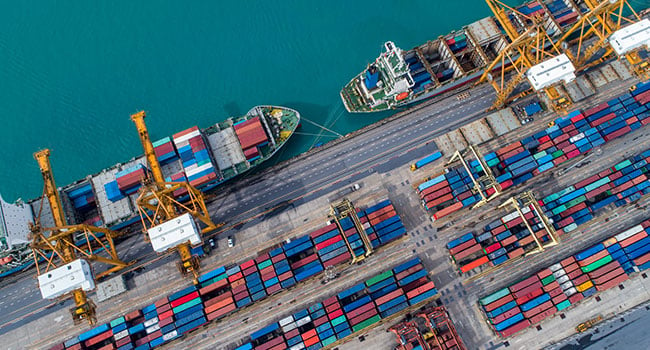New rules for the leasing of vessels may affect taxation
 ‹ Back to the articles
‹ Back to the articles
The Swedish government has published a bill which proposes new rules that will make it easier to charter in and charter out vessels on bareboat charter, in Sweden. The bill does not include any changes to tax legislation, but for those who are working in the shipping industry or have interests in the industry, the proposal still entails some important changes in terms of taxation. In this article, we have highlighted a couple of tax law issues to keep an eye on.
What do the new rules mean?
Through the New rules among other things, a new so-called bareboat register is being introduced in Sweden. A bareboat register is a special section of the vessel register where vessels hired from abroad can be temporarily registered under the Swedish flag. This means that a vessel can be registered in two countries at the same time – in the owner's home country and in Sweden. In addition, the possibilities of leasing out Swedish vessels to foreign shipowners in order to be temporarily registered abroad will be simplified. The aim is to make it easier for Swedish shipping companies to charter and charter out vessels and thus increase flexibility and competitiveness in Swedish shipping industry. The legislative amendments are proposed to enter into force on 1 February 2026.
Tax law issues
When a vessel gets a new so-called flag state, it can affect the taxation of both shipping companies and seafarers.
Tonnage tax regime
The tonnage tax regime is a special tax system for shipping companies where taxation is based on the size of the vessel instead of the actual profit. To use tonnage taxation, a certain proportion of the shipping company's qualified vessels must be registered in the EEA.
Vessels in the new bareboat register are counted as Swedish-registered and are thus also registered within the EEA, which may affect whether the shipping company meets the requirements for tonnage taxation.
The regulatory changes may also make it more attractive to charter out on bareboat terms. In this respect, it is important to remember that there are rules that limit the possibility for bareboat leasing income to be subject to tonnage taxation. Hiring out on bareboat terms is only counted as qualified shipping business (i.e. activities that are subject to tonnage taxation) if the leasing takes place for a maximum of three years over a ten-year period and up to a maximum of 20 per cent of the total gross tonnage of the qualified vessels included in the qualified shipping business. Here it can be noted that there is a memorandum that has proposed increased opportunities for bareboat leasing within the Swedish tonnage tax regime.
Seafarers' taxation
When a vessel changes flags, it can affect how seafarers' income is taxed. The Swedish Tax Agency has pointed out that the new rules may make the taxation of seafarers more complicated, especially if vessels are flagged in and out frequently. For example, this may mean that a seafarer will have different taxation rules depending on which register the vessel is in, even if the employer and the workplace are otherwise the same.
Since the proposed rule changes mainly concerns bareboat charters (i.e. chartering out without crew), it is the Government's assessment that taxation issues should arise in relatively few situations. Nevertheless, it is important to be aware that the taxation rules may change if the vessel changes nationality.
Swedish shipping subsidies for seafarers (Sw. Sjöfartsstöd)
Swedish Shipping subsidies for seafarers (Sw. Sjöfartsstöd) is a form of financial support for employers in the shipping industry. The shipping subsidy means that the employer can be repaid 99 percent of paid employer's contributions (and general payroll tax) and tax on seafaring income (Sw. Sjöinkomst). One of the prerequisites for receiving shipping subsidies is that the vessel must be registered in a national register in a state within the EEA. Foreign vessels that are temporarily registered in Sweden via the bareboat register will thus be able to be covered by shipping subsidies, provided that all other conditions are met as well.
Conclusion
Although the Governments bill at first glance does not seem to include any tax law changes, it is important to note that the rules may still have consequences for taxation.
If you have any questions or need advice, please feel free to contact us for further guidance.

Rebecka Fröjd & Ulrika Lundh Eriksson
Rebecka Fröjd and Ulrika Lundh Eriksson works at PwC’s office in Gothenburg with national and international corporate taxation focusing on transport, logistics and shipping.
Rebecka: +46 10 212 92 49,
rebecka.froejd@pwc.com
Ulrika: +46 10 213 14 17,
ulrika.lundh.eriksson@pwc.com

Leave a comment